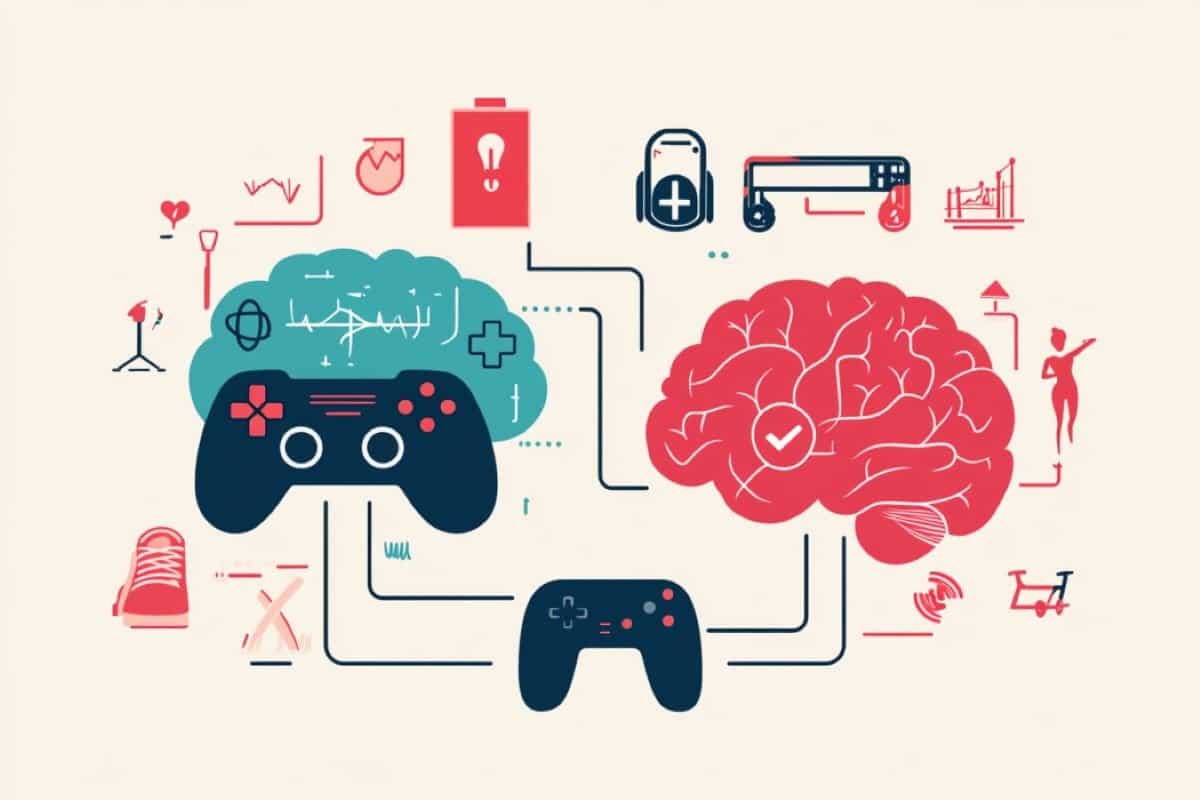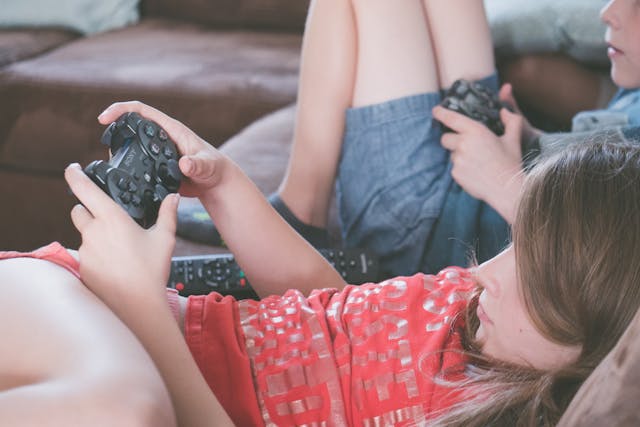Gaming and Mental Health: Exploring the Benefits and Risks of Video Games
Video games have evolved from simple leisure activities to immersive, complex experiences that attract millions worldwide. While gaming is primarily seen as entertainment, its effects on mental health are a topic of ongoing research and debate. Some studies suggest that gaming can provide mental health benefits, while others highlight the potential risks. This article explores both sides of the argument, examining how video games can impact mental well-being.

The Mental Health Benefits of Gaming
Stress Relief and Relaxation
Video games can offer a form of escapism, allowing players to immerse themselves in different worlds, which can help alleviate stress and anxiety. Games that involve exploration, creativity, or storytelling, such as "Animal Crossing" or "The Legend of Zelda," offer a break from real-world concerns and allow players to relax and unwind.
Research suggests that playing games, especially those that require focus and problem-solving, can help distract the mind from daily worries. For some individuals, this temporary escape provides relief from feelings of anxiety, depression, or stress.
Improved Cognitive Function
Certain types of video games, particularly strategy games or puzzle games like "Tetris" and "Portal," have been shown to improve cognitive abilities. These games require players to think critically, plan ahead, and solve problems, which can stimulate mental agility. Studies suggest that playing such games can enhance memory, attention, and problem-solving skills, all of which are vital to overall brain health.
Additionally, games that involve multitasking—such as action or shooting games—may help improve hand-eye coordination and reaction times. These cognitive benefits extend beyond gaming and can have positive impacts on everyday tasks and decision-making.
Social Connection and Community Building
Online multiplayer games like "Fortnite" and "World of Warcraft" allow players to connect and collaborate with others from around the world. For people who may experience loneliness or social anxiety, these platforms offer a sense of community and belonging. Gaming can facilitate meaningful social connections, with players forming friendships, working as a team, and sharing experiences in-game.
For those with mental health challenges, especially social anxiety, online games provide a way to engage with others in a low-pressure environment. This sense of camaraderie can boost self-esteem, enhance social skills, and provide emotional support.
The Mental Health Risks of Gaming
Addiction and Excessive Use
One of the most significant risks of gaming is addiction. For some individuals, gaming can become a compulsive behavior, leading to excessive playtime that interferes with daily responsibilities, work, or school. Gaming addiction, sometimes referred to as "gaming disorder," has been recognized by the World Health Organization (WHO) as a mental health condition.
People with gaming addiction often experience withdrawal symptoms when not playing, such as irritability, restlessness, or anxiety. The intense focus on gaming can replace social interactions and physical activities, which can have negative long-term effects on mental and physical health.
Sleep Disruption
Excessive gaming, especially late into the night, can interfere with sleep patterns. The blue light emitted by screens can disrupt the production of melatonin, a hormone responsible for regulating sleep. This can lead to poor sleep quality, insomnia, or irregular sleep cycles. Lack of adequate rest can exacerbate mental health issues like anxiety and depression and impair cognitive functioning.
Additionally, some games are designed to be highly engaging, with frequent rewards and achievements, which can lead players to play longer than intended. This extended screen time, particularly at night, can disrupt circadian rhythms and impact overall well-being.
Social Isolation and Withdrawal
While some people find social connection through gaming, excessive gaming can also lead to social isolation. Individuals who spend large amounts of time in virtual worlds may begin to withdraw from real-life relationships and responsibilities. This isolation can worsen feelings of loneliness, depression, and anxiety, particularly if gaming is used as a means of avoiding social interactions or real-world problems.
If gaming becomes a form of avoidance, individuals may neglect important life tasks, such as attending work or school, which can lead to further stress and anxiety. Social withdrawal can also contribute to a decrease in face-to-face social skills and hinder emotional growth.

How to Use Gaming for Mental Health Benefit
Setting Limits and Balance
One of the key ways to enjoy the benefits of gaming without falling into the trap of addiction or negative consequences is to set limits. Establishing specific playtime hours, taking regular breaks, and ensuring a healthy balance between gaming and other activities can help manage the risks associated with excessive gaming.
For example, using the 1-2 hour rule—gaming for no more than one or two hours per session—can help prevent overuse and promote a healthy lifestyle. Incorporating physical activities, hobbies, and social interactions outside of gaming is essential to maintaining mental and physical health.
Choosing the Right Games
Not all games are created equal, and choosing the right type of game can make a significant difference in mental well-being. Games that promote relaxation, creativity, or social interaction tend to have positive effects, while those with violent content or high-intensity gameplay may increase stress and anxiety in some individuals.
Look for games that offer a positive and engaging experience, such as puzzle games, adventure games, or simulation games. Games that encourage collaboration or provide a creative outlet can be great for fostering a sense of achievement, self-expression, and community.
Using Gaming as a Tool for Therapy
Some mental health professionals use video games as a therapeutic tool. Games that encourage mindfulness, relaxation, or problem-solving are sometimes incorporated into therapy sessions for patients dealing with stress, anxiety, or depression. Additionally, games that help individuals practice coping skills or provide emotional regulation can serve as valuable resources for managing mental health.
In recent years, "serious games" designed for therapeutic purposes have become more popular. These games, which address mental health issues in a structured way, are designed to help individuals cope with emotions, develop resilience, and improve mental well-being.
Conclusion: Striking a Healthy Balance
Video games can have both positive and negative effects on mental health. While gaming offers benefits such as stress relief, cognitive enhancement, and social connection, excessive gaming can lead to addiction, sleep disruption, and social withdrawal. The key is to approach gaming with balance and awareness. By setting limits, choosing appropriate games, and maintaining a healthy lifestyle, players can enjoy the benefits of gaming while minimizing the risks.
As with any form of entertainment or leisure activity, moderation is essential. When used mindfully, video games can be a valuable tool for relaxation, learning, and social interaction. However, it’s important to be mindful of when gaming may become problematic, and to seek professional help if necessary. Ultimately, gaming, like any other activity, should be part of a well-rounded lifestyle that promotes both mental and physical well-being.












